Best Home EV Chargers UK 2023
Everything you need to know to choose the best home EV charger in 2023
Electric vehicles will soon dominate UK roads. Since the UK government pledged to cut carbon emissions by 45% by 2030, EV chargers are increasingly becoming a motoring necessity. In the article, we are going to take you through our choices for the Best Home EV Chargers To Buy in 2023.
The consumer demand for EVs in the UK is undeniable. According to data gathered at the end of November 2022, there are more than 620,000 EVs on our roads with a further 440,000 plug-in hybrids. One-in-four UK households will buy an electric car in the next five years.
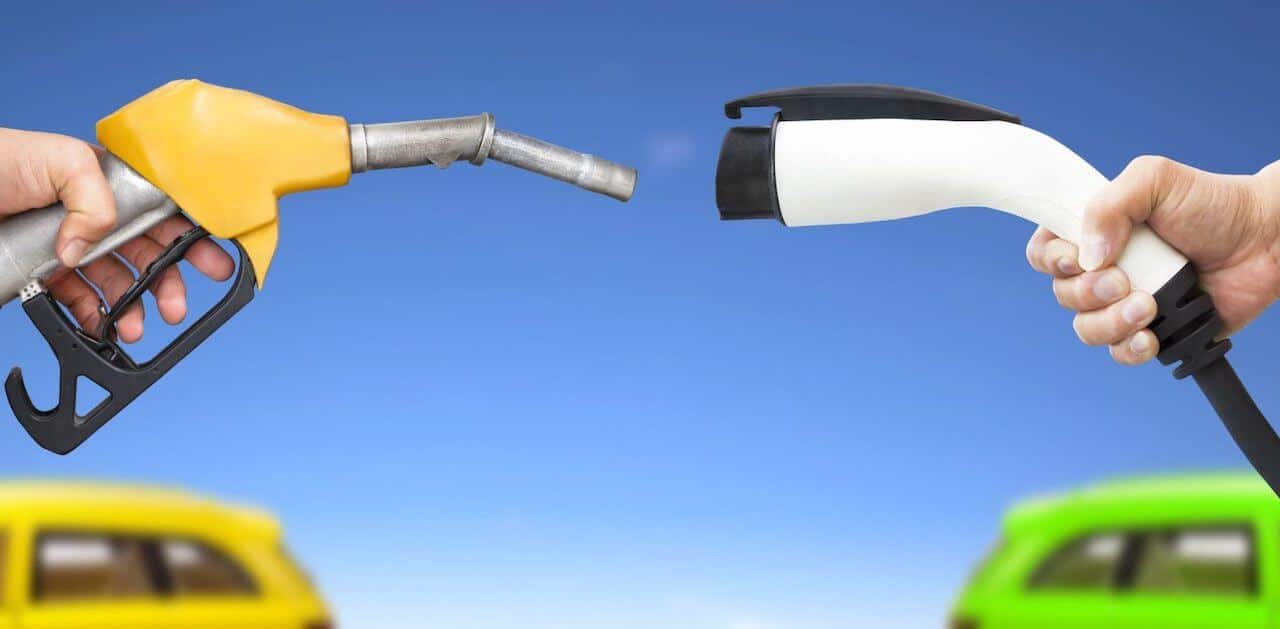
From 2030 onwards, sales of new petrol and diesel cars will be banned in the UK. New hybrids will still be allowed until 2035 as long as they are capable of ‘covering a significant distance’ in zero emission mode.
After 2035, any vehicle sold in the UK must be solely electric or another renewable energy source (hydrogen is the leading alternative at the moment). The EU has similarly announced its intention to ban petrol and diesel cars from 2035.
If EVs are the future, we're going to need a lot of electric vehicle chargers.
The number of public electric vehicle charging stations across the UK increased a lot in 2022. As of September 2022, there are 57,613 connectors and 34,860 devices across 20,888 locations.
Electric vehicle charger companies have invested a lot of time and energy to improve the quality and performance of their residential and commercial EV charging stations. Continuous investment is needed for them to stay compliant with the ever-growing portfolio of battery-electric vehicles (BEVs) and plug-in hybrid electric vehicles (PHEVs).
There’s little to suggest that EV demand will decrease in 2023, especially when we’re likely to see the Rolls-Royce Spectre, Polestar 3 and Lotus Eletre Hyper SUV to hit the market.
2023 may well be the year that the Tesla Model 3, the Volkswagen ID.3, Kia e-Niro, even the Hyundai Ioniq 5 will face significant challenge. Customers have more choice than ever before in the electric hecile market
Now, of course, more electric vehicles on UK means there is a need for more electric vehicle chargers. 2021 saw the largest annual electric vehicle registration increase on record (+70%).
There has never been a more better time time to learn what the best home EV chargers are. There's more than one way to charge your car.
Read article
What’s The Difference Between Tethered and Untethered EV Chargers
Tethered chargers are equipped with a cable that's attached to the EV charger, whereas an untethered charger doesn’t have a charging cable attached to it (you bring your own).
Most electric vehicle owners opt for a tethered charger. Convenient and easy to use, all you need to do is unravel the cable, plug-in the charging point as you would filling a car with petrol or diesel and transfer electricity to the vehicle battery. Typically, tethered manufacturer chargers are five metres long. However, lengths can vary between two-to-ten metres.
However, it’s important to know that tethered chargers are restricted by having only Type One or Type Two connection types. So it’s important to make sure that any electric vehicle you buy is compatible with a tethered EV charger.
Untethered chargers feature a detachable cable that can be stored in your car. They a bit less convenient than tethered chargers - but still widely used.
Read article
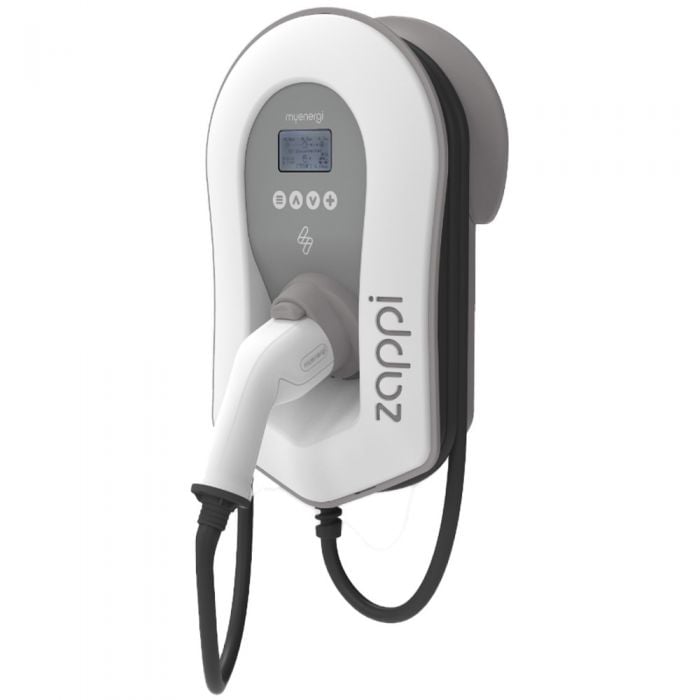
Let’s start the list with an authentic, made in Britain EV charger – the myenergi Zappi Smart Home EV Charger. At £779 including VAT, the self-styled ‘British made awesomeness’ brand was founded in 2016 with a singular purpose ‘to provide energy independence and drive a sustainable future.
Here’s an overview of the myenergi Zappi Smart Home EV charger:
Pros and cons of the myenergi Zappi Smart Home EV charger:
Key features of the myenergi Zappi Smart Home EV charger:
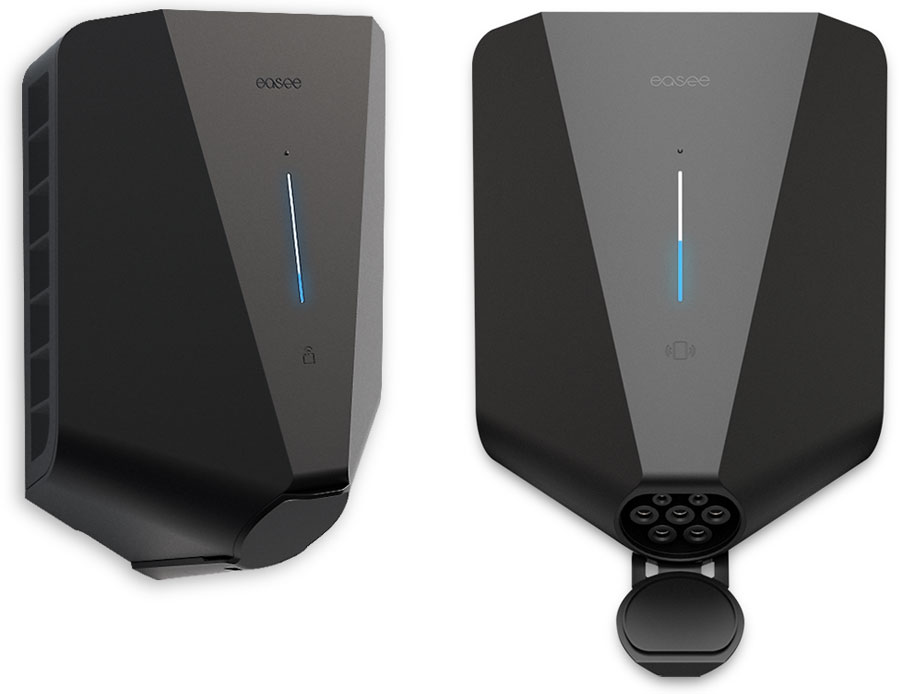
A new player in the electric vehicle charger space, Norwegian brand Easee’s reputation has quickly gained traction in the Scandinavian region, and across Europe. Priced at just £655 including VAT and matching the performance of any EV charge point manufacturers, electric vehicle owners in Scandinavia and 17 European countries have already proclaimed their loyalty to what the brand claims is ‘the world's smartest electric vehicle charger.’
Here’s an overview of the Easee Home EV charger:
Pros and cons of the Easee Home EV charger:
Key features of the Easee Home EV charger:
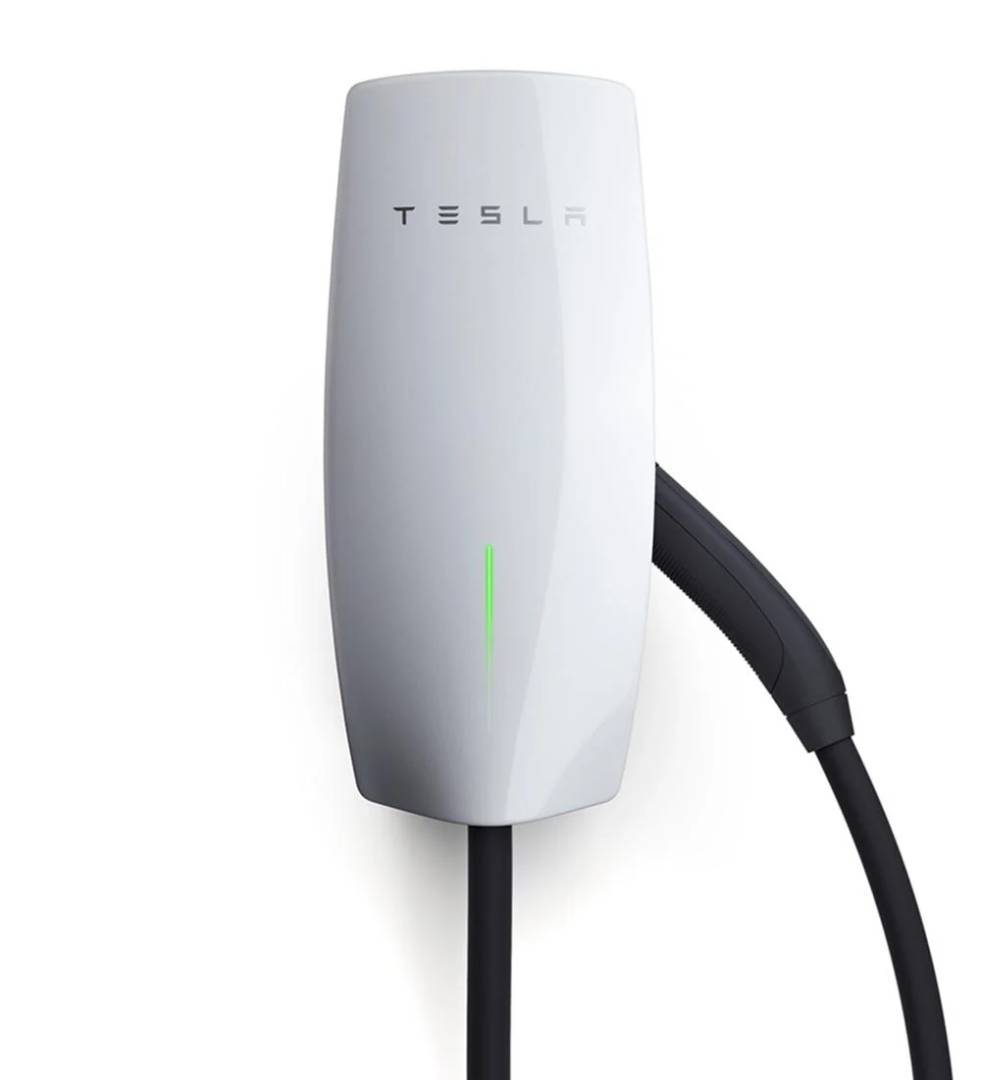
Our third – and let’s be honest – most obvious electric vehicle charger belongs to the brand who pioneered electric vehicles and, as of the end of 2022, stands atop the podium as the UKs most popular electric vehicle manufacturer – Tesla.
Compatible with not just Tesla’s but all Type 2 electric vehicles, Tesla’s EV charger is the cheapest of the three, priced at a mere £499 including VAT. In 2020, Tesla surpassed a production volume of one million plug-in electric vehicles, making their chargers essential to consistent and reliable performance.
Here’s an overview of the Tesla Home EV charger:
Pros and cons of the Tesla Home EV charger:
Key features of the Tesla Home EV charger:
Read article
That said, all three of these Home EV Charger are excellent choices and all offer an excellent balance of capabilities and cost effectiveness.
Whether you already own a Tesla Model 3 or Hyundai Ioniq 5 – or are thinking about buying your first electric vehible, you can't go far wrong with the myenergi Zappi, Easee or Tesla Home EV chargers.
If you want to read more about the costs involved, including installation, taxes and subsidies available, have a read of our guide on the cost of EV charger installation.
With the increasing popularity of electric cars (here’s our article on why!), more and more people are also looking for parking spaces with electric car charging points. If you have a spare parking space with a charging point, why not earn some extra income by renting it out with Stashbee?
The consumer demand for EVs in the UK is undeniable. According to data gathered at the end of November 2022, there are more than 620,000 EVs on our roads with a further 440,000 plug-in hybrids. One-in-four UK households will buy an electric car in the next five years.
Find Parking
Browse thousands of parking spaces for rent
Find ParkingNew Petrol & Diesel Cars: Banned in the UK from 2030

From 2030 onwards, sales of new petrol and diesel cars will be banned in the UK. New hybrids will still be allowed until 2035 as long as they are capable of ‘covering a significant distance’ in zero emission mode.
After 2035, any vehicle sold in the UK must be solely electric or another renewable energy source (hydrogen is the leading alternative at the moment). The EU has similarly announced its intention to ban petrol and diesel cars from 2035.
If EVs are the future, we're going to need a lot of electric vehicle chargers.
How many EV Charging Stations are there in the UK?
The number of public electric vehicle charging stations across the UK increased a lot in 2022. As of September 2022, there are 57,613 connectors and 34,860 devices across 20,888 locations.
Electric vehicle charger companies have invested a lot of time and energy to improve the quality and performance of their residential and commercial EV charging stations. Continuous investment is needed for them to stay compliant with the ever-growing portfolio of battery-electric vehicles (BEVs) and plug-in hybrid electric vehicles (PHEVs).
There’s little to suggest that EV demand will decrease in 2023, especially when we’re likely to see the Rolls-Royce Spectre, Polestar 3 and Lotus Eletre Hyper SUV to hit the market.
2023 may well be the year that the Tesla Model 3, the Volkswagen ID.3, Kia e-Niro, even the Hyundai Ioniq 5 will face significant challenge. Customers have more choice than ever before in the electric hecile market
Now, of course, more electric vehicles on UK means there is a need for more electric vehicle chargers. 2021 saw the largest annual electric vehicle registration increase on record (+70%).
There has never been a more better time time to learn what the best home EV chargers are. There's more than one way to charge your car.
Related
How To Find Free Parking For Electric Vehicles in London
What’s The Difference Between Tethered and Untethered EV Chargers
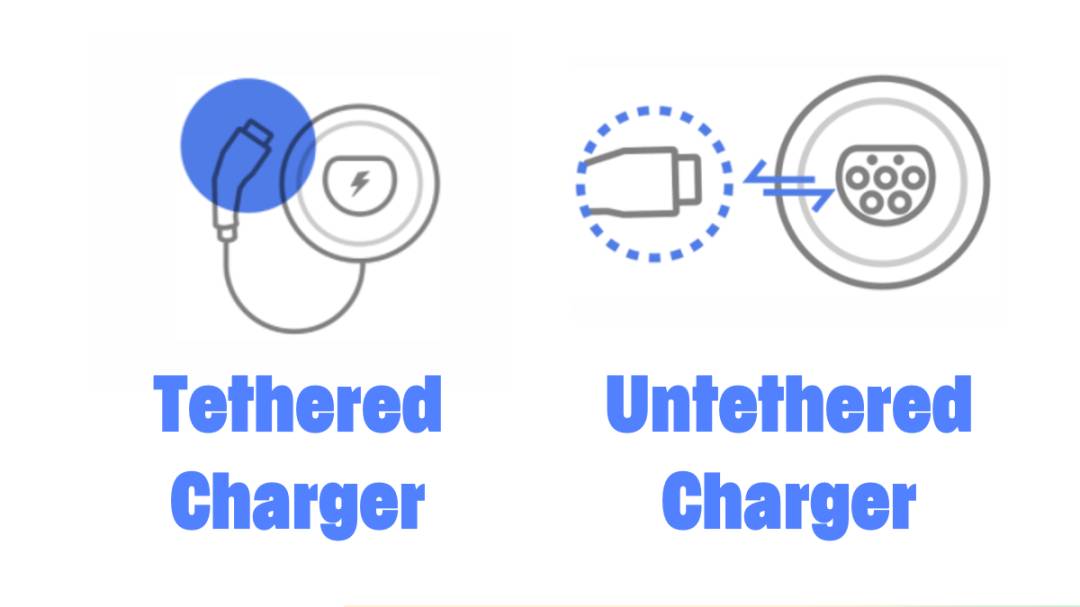
Tethered chargers are equipped with a cable that's attached to the EV charger, whereas an untethered charger doesn’t have a charging cable attached to it (you bring your own).Most electric vehicle owners opt for a tethered charger. Convenient and easy to use, all you need to do is unravel the cable, plug-in the charging point as you would filling a car with petrol or diesel and transfer electricity to the vehicle battery. Typically, tethered manufacturer chargers are five metres long. However, lengths can vary between two-to-ten metres.
However, it’s important to know that tethered chargers are restricted by having only Type One or Type Two connection types. So it’s important to make sure that any electric vehicle you buy is compatible with a tethered EV charger.
Untethered chargers feature a detachable cable that can be stored in your car. They a bit less convenient than tethered chargers - but still widely used.
Related
Why Electric Car Charging is the Future
Best EV Home Chargers of 2023
EV drivers charge their EVs at home 80% of the time, which means that more and more of us UK drivers are going to be installing EV home chargers soon. Here are our picks for the best EV home chargers to buy in 2023.3. myenergi Zappi Smart Home EV Charger

Let’s start the list with an authentic, made in Britain EV charger – the myenergi Zappi Smart Home EV Charger. At £779 including VAT, the self-styled ‘British made awesomeness’ brand was founded in 2016 with a singular purpose ‘to provide energy independence and drive a sustainable future.
Here’s an overview of the myenergi Zappi Smart Home EV charger:
| Features | Yes / No |
| Residential EV Chargers (AC) | Yes |
| Business EV Chargers (AC) | Yes |
| Public EV Chargers (DC) | No |
| Untethered (socket only) EV Chargers | Yes |
| Tethered EV Chargers (6.5m) | Yes |
| Smart EV Chargers | Yes |
| Solar/Wind Compatible | Yes |
| Warranty | 3 years |
Pros and cons of the myenergi Zappi Smart Home EV charger:
| Pro | Con |
| Has a formidable reputation for its smart EV charge points | Significant competition for the capability of the charger |
| Solar wind compatible | Limited colour options |
| Manufactured in the UK | Does not offer DC charging |
Key features of the myenergi Zappi Smart Home EV charger:
| Technical Spec | Zappi Smart Home EV charger |
| Earthing | No earth rod required: built-in PEN fault |
| Mobile App | Remote access through the myenergi app |
| Time function | Boost timer to set charging times when tariff rates are cheaper |
| PIN protected | Yes |
| Mounting location | Permanent indoor or outdoor mounting |
| Charging protocol | Mode3 (IEC 61851-1 compliant communication protocol) |
| Display | Graphical backlit LCD |
| Charging current | 6A to 32A (variable) |
| Connector type | Type 2 tethered cable (6.5m) or Type 2 socket with locking system |
| Compliance | LVD 2014/35/EU, EMC 2014/30/EU, EN 62196, EN62955:2018 CE certified |
2. Easee Home EV Charger

A new player in the electric vehicle charger space, Norwegian brand Easee’s reputation has quickly gained traction in the Scandinavian region, and across Europe. Priced at just £655 including VAT and matching the performance of any EV charge point manufacturers, electric vehicle owners in Scandinavia and 17 European countries have already proclaimed their loyalty to what the brand claims is ‘the world's smartest electric vehicle charger.’
Here’s an overview of the Easee Home EV charger:
| Features | Yes / No |
| Residential EV Chargers (AC) | Yes |
| Business EV Chargers (AC) | Yes |
| Public EV Chargers (DC) | No |
| Untethered (socket only) EV Chargers | Yes |
| Tethered EV Chargers (6.5m) | No |
| Smart EV Chargers | Yes |
| Solar/Wind Compatible | No |
| Warranty | 3 years |
Pros and cons of the Easee Home EV charger:
| Pro | Con |
| An established market leader in Norway | Not compatible with solar |
| High quality manufacturing | Does not feature a tethered version |
| Lightweight and easy to install | Not much of a UK presence |
Key features of the Easee Home EV charger:
| Technical Spec | Easee EV charger |
| Charging power | Fully dynamic 1.4 – 22Kw (1 and 3 phase charging) |
| Infrastructure | Up to three units per fuse load balancing without additional wireless infrastructure |
| Compatibility | Load and phase balancing works both online and off |
| Performance | 4G integration in each box (e-sim), complete with free lifetime subscription |
| Wi-Fi | Wi-Fi compatible |
| Safety | Integrated earth fault protection (Integral-type B RCD) |
| Wireless | Integrated RFID reader (NFC / ISO 14443 and MiFare Classic) |
| Energy | Energy measurement (+/- 3%) for reading charge consumption |
| Manufacturing | Developed and manufactured in Norway |
| Size | Sixty-nine percent smaller than competing chargers. Weighs just 1.5kg |
| Compatibility | Fits all electrical mains and cars |
1. Tesla Home EV Charger

Our third – and let’s be honest – most obvious electric vehicle charger belongs to the brand who pioneered electric vehicles and, as of the end of 2022, stands atop the podium as the UKs most popular electric vehicle manufacturer – Tesla.
Compatible with not just Tesla’s but all Type 2 electric vehicles, Tesla’s EV charger is the cheapest of the three, priced at a mere £499 including VAT. In 2020, Tesla surpassed a production volume of one million plug-in electric vehicles, making their chargers essential to consistent and reliable performance.
Here’s an overview of the Tesla Home EV charger:
| Features | Yes / No |
| Residential EV Chargers (AC) | Yes |
| Business EV Chargers (AC) | Yes |
| Public EV Chargers (DC) | Yes (Tesla Superchargers) |
| Untethered (socket only) EV Chargers | No |
| Tethered EV Chargers (6.5m) | Yes |
| Smart EV Chargers | Yes |
| Solar/Wind Compatible | Yes |
| Warranty | 4 years |
Pros and cons of the Tesla Home EV charger:
| Pro | Con |
| High quality EV charger from a reputable EV company | Only compatible with solar PV via the Powerwall |
| Easy installation | Does not include SIM connectivity |
| Attractive sleek design | Limited colour choice |
| Compatibility with power sharing | Standard cable only extends to 2.5m. (Can be upgraded to longer 7.3m cable for additional cost |
| Notable upgrade on second generation charger |
Key features of the Tesla Home EV charger:
| Technical Spec | Tesla EV charger |
| Charging speed | Wall connector is compatible with Model S, Model X, Model Y, Model 3 and all EVs with a Type 2 charging port. It delivers forty-four miles of range for every hour charged and achieves 16.6kW on Model S or X across a three-phase connection/48-amp output (depending on the model). |
| Voltage and wiring | 1-phase 230 V L-N/3-phase 230 V L-L/3-phase 400 V L-L |
| Output | Maximum 32A |
| Supported earthing scheme | TN/TT/IT |
| Cable length | 7.3m (24ft) or 2.6m (8.5ft) |
| Wall connector dimensions |
Height: 345mm (13.6 in) Width: 155mm (6.1 in) Depth: 110mm (4.3 in) |
| Weight (including wire box) | 6.8kg (15 lb) |
| Operating temperature | -30 degrees Celsius to +50 degrees Celsius |
| Storage temperature | -40 degrees Celsius to +85 degrees Celsius |
| Enclosure rating | IP55 |
| Residual current deduction | Integrated (Type A + DC 6mA) |
| Wi-Fi specifications | 2.4GHz, 802.11b/g/n (capable of receiving updates) |
| Charging status | LED light strip |
| Certifications | CE, IEC 61851-1 CB |
Related
How Much Does It Cost To Install An Electric Car Charger?
Our Pick for Best EV Charger 2023 UK
For the cost, support available, and scale and reliability of the company, our pick is the Tesla Home EV Charger.That said, all three of these Home EV Charger are excellent choices and all offer an excellent balance of capabilities and cost effectiveness.
Whether you already own a Tesla Model 3 or Hyundai Ioniq 5 – or are thinking about buying your first electric vehible, you can't go far wrong with the myenergi Zappi, Easee or Tesla Home EV chargers.
If you want to read more about the costs involved, including installation, taxes and subsidies available, have a read of our guide on the cost of EV charger installation.
With the increasing popularity of electric cars (here’s our article on why!), more and more people are also looking for parking spaces with electric car charging points. If you have a spare parking space with a charging point, why not earn some extra income by renting it out with Stashbee?
Find Parking
Browse thousands of parking spaces for rent
Find ParkingAnthony
Written 13th Apr 2023
